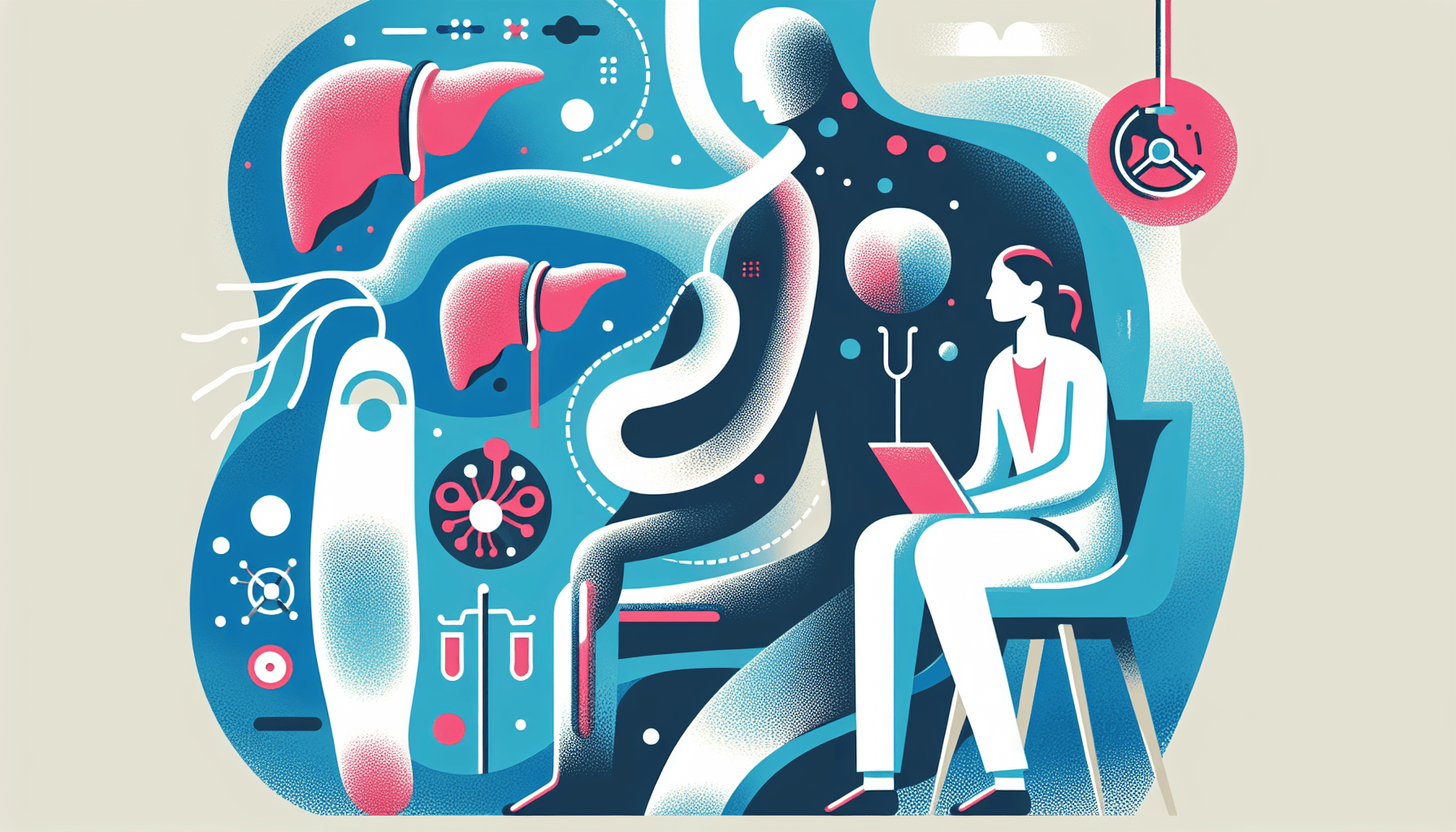Primary biliary cholangitis (PBC) (formerly called Primary Biliary Cirrhosis) is a liver disease that damages the bile ducts in your liver. These ducts play a crucial role in carrying bile, a fluid that helps with digestion, away from your liver. When the bile ducts don't work properly, substances like fats, cholesterol, and worn-out red blood cells stay in your liver, causing inflammation and scarring. PBC is found most often in women.
Symptoms of PBC
In the early stages of PBC, you may not notice any symptoms. As the disease progresses, you might experience:
Fatigue
Itchy skin
Dry eyes and mouth
Yellow skin and eyes (jaundice)
Swollen feet and ankles
Right upper quadrant abdominal discomfort
Swelling in your abdomen
Bone, muscle, or joint pain
Darkened skin
Xanthelasmas or xanthomas (cholesterol deposits in your skin or tendons)
Pale stools
Dark urine
Causes of PBC
The exact cause of PBC is unknown, but it may be linked to immune system problems like thyroid trouble, pernicious anemia, or scleroderma. External factors such as smoking, chemicals, or infections can also trigger the disease. While PBC isn't passed down from parents to children, there seems to be a family link, and it's more common if you have a parent or sibling with the condition.
Diagnosing PBC
If you have any symptoms of PBC, your doctor may recommend blood tests to assess your liver function and check for immune system issues. They may also suggest imaging tests like an ultrasound, CT scan, MRI, or endoscopy (ERCP) to get a more detailed look at your liver. In some cases, a liver biopsy may be necessary to examine liver tissue for damage or disease.
Treatment Options for PBC
Although there's no cure for PBC, medications can slow down the disease's progression. The most common drug is ursodiol (ursodeoxycholic acid), which helps move bile through your liver. Another medication, obeticholic acid (Ocaliva), can be used with ursodiol or alone to treat PBC. Newer drugs are also available to treat symptoms like itching and fatigue.
In addition to medications, your doctor may suggest lifestyle changes, such as:
Stopping alcohol consumption to reduce strain on your liver
Choosing low-sodium foods
Exercising regularly to ease symptoms
When medications are no longer effective, a liver transplant may be an option for some patients with advanced PBC.
Additional Resources
For more information on primary biliary cholangitis, visit:



